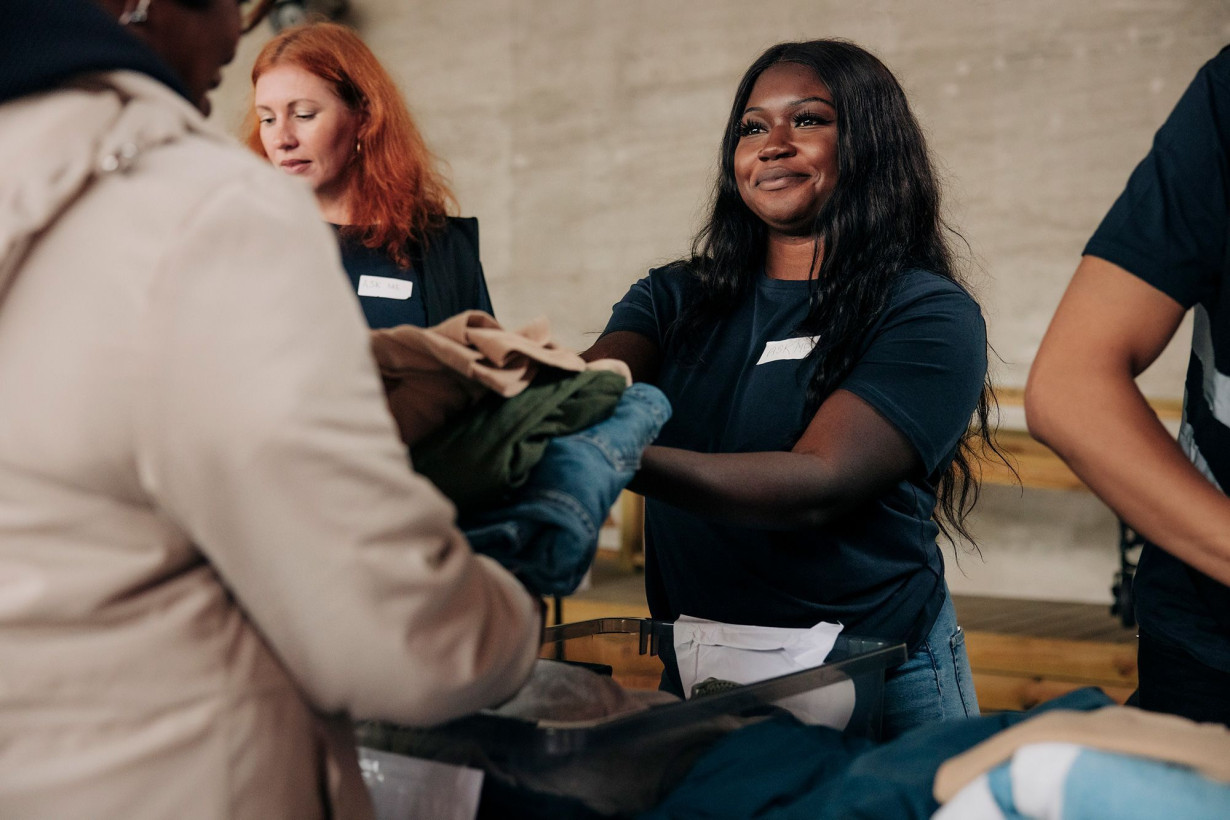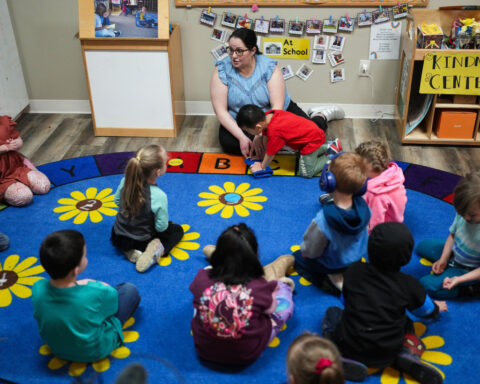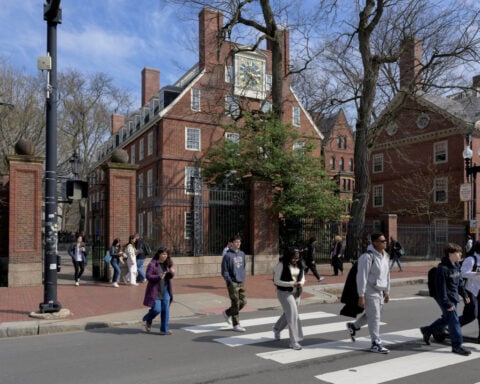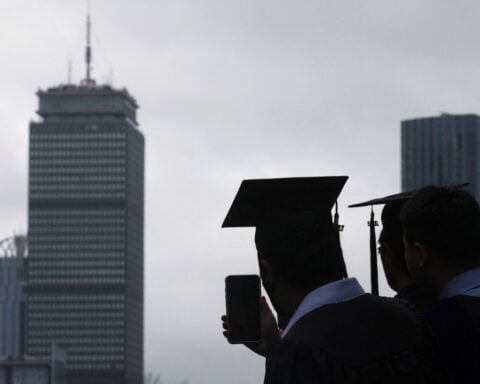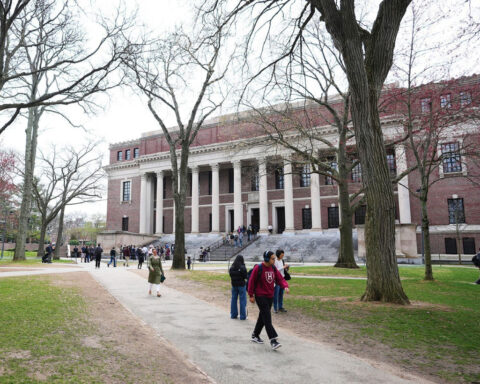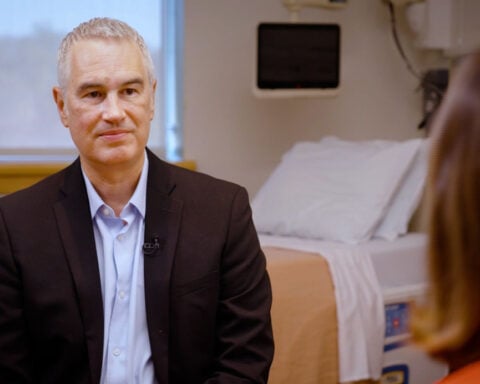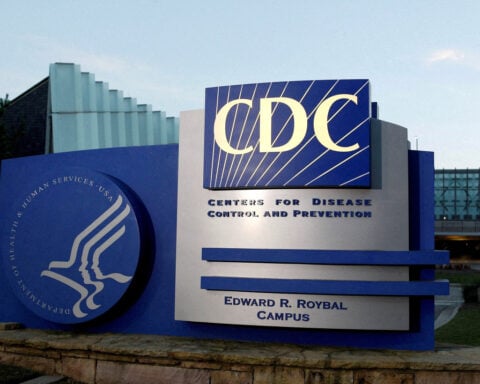(CNN) — The world may feel cold, scary and cruel, but if you are open to seeing it, there is a lot of kindness, according to a new report.
The World Happiness Report, released each year on the International Day of Happiness, is a global analysis on happiness and well-being in partnership with Gallup, the University of Oxford Wellbeing Research Centre and the UN Sustainable Development Solutions Network.
This year’s report paid special attention to acts of benevolence and people’s expectations of their communities.
What are acts of benevolence? The report divided them into three categories: donating money, volunteering and doing a nice thing for a stranger.
Based on the data, 70% of the world’s population did at least one kind thing in the last month, the report found.
“That’s a really, really high number,” said Dr. Felix Cheung, the report’s coauthor and assistant professor of psychology at the University of Toronto and Canada Research Chair in Population Well-Being. “We should just look at that number and feel really good. Seven in 10 people around us have done something nice … in the past month.”
This trend of doing kind things is down from a spike during the Covid-19 pandemic, but it is still an improvement from pre-lockdown numbers, according to the report.
“Even though the world feels like it’s a pretty difficult place right now, it is nice to know that people are engaging in kind and generous acts,” said Dr. Lara Aknin, professor of social psychology at Simon Fraser University in British Columbia and an editor of the World Happiness Report.
There is evidence that doing nice things helps both the recipient and the doer feel happier, and benevolence may be a key step to improving your own happiness and the overall happiness in the United States, which continues to drop on the list of happiest countries, said Ilana Ron-Levey, a managing director of the public sector at Gallup. (The US ranked No. 24 on this year’s list of the happiest countries.)
Doing good feels good
Making a donation, doing an hour of volunteer work or engaging in some other small act of kindness may seem insignificant in the list of big things that make a happy life, but the data says otherwise, according to Ron-Levey.
“Acts of generosity predict happiness even more than earning a higher salary,” she said.
Aknin has studied the impact of benevolence and found that it’s significant.
One experiment recruited a sample of participants on university campuses to report their baseline happiness. Researchers then gave them a small amount of money –– about $2 to $5 –– and told them to spend it on themselves or someone else, she said.
“Then we measure people’s immediate emotional reactions,” Aknin said. “By and large, we find in almost all of our studies that people randomly assigned to spend generously report feeling higher levels of happiness than people who spend on themselves.”
The pattern was similar in other countries such as South Africa, Uganda and India.
“We’re a super social species,” Aknin said, “and we argue that acts of generosity help build and sustain those connections.”
The ‘empathy gap’
Given the number of people who do kind things, expectations of benevolence are generally low, Aknin said.
“Long story short is that people are overly pessimistic,” she said.
To understand how people perceive the levels of kindness around them, researchers for the survey asked if people expected a lost wallet to be returned to them, Cheung said. The researchers broke the survey down by seeing if people expected a neighbor, the police or a stranger would return the wallet.
“The US ranks 17th in the world in believing a neighbor would return a lost wallet, 25th in the world in believing the same of police, but ranks only 52nd in believing that a stranger would return a wallet, which really suggests some fraying of social cohesion,” Ron-Levey said.
People were more likely to believe that a neighbor or police officer would return a lost wallet if found, but belief in a stranger is a barometer of trust, Aknin said.
“The stranger returning a lost wallet is really, really important in terms of that trust in your society,” she said.
And researchers have been able to compare the expectations with reality.
In previous studies, researchers have gone to different cities around the globe, dropped wallets and analyzed the rates of the wallets being returned against what the people in that city reported they believed would happen, Aknin said.
Almost every place drastically underestimated the likelihood of the wallet being returned by a stranger, she said. The disparity is called an “empathy gap,” Aknin added.
For example, about one-third of people expected a lost wallet to be returned in the US, whereas two-thirds of such wallets actually were, Cheung said.
It makes sense that a bigger empathy gap would have a negative impact on happiness, Aknin added.
“If we assume the worst of others, it shapes how we interact with the world,” Aknin said. “If we expect the worst of others, we walk around the world fearful, and that matters for our own well-being.”
Why build community
The good news is that the empathy gap can be closed, Aknin said.
“We’re not asking people to have unreasonably optimistic (expectations),” Cheung said. But if
you can “develop that trust and you can expect that level of kindness, you will be a lot happier.”
The report shows that people’s perceptions of the kindness of others has improved when they take social risks, Aknin said.
“When they do, they realize that most of these risks are met with kindness and positivity,” she said.
Aknin’s research has also showed the best ways to perform benevolent acts to get the boost of happiness. She calls it the three C’s.
In your kind acts, you should connect with others, Aknin said. For example, you are more likely to get a bigger boost taking someone out for coffee rather than sending a person $5 to get coffee on their own, she said.
“Social time is pretty critical, or that face-to-face connection can go a long way,” Aknin added.
The second C is for choice, meaning it feels better when you act in a kind or generous way because you want to, not because you feel obligated to do so, she said.
The last is for a clear sense of positive impact. Doing something you can see the impact of or donating to a cause that you can see the benefit of is likely to give you the most fulfillment, Aknin said.
One other metric that may tell part of the story regarding the connection between kindness and happiness is the rate of people eating alone, Ron-Levey said.
“Even when accounting for household size, eating alone is linked to lower lifestyle satisfaction,” she said.
And meal sharing has been going down: One in 4 Americans reported eating all their meals alone the previous day –– which is a 53% increase since 2003, Ron-Levey said.
“These things are all connected,” she added. “If you’re eating by yourself most of the time, if you don’t have someone that you can rely on in a time of need, if you’re losing trust in institutions and your community, it’s going to lead most likely to fewer benevolent acts, which, in turn, affects your happiness.”
Those factors add up to isolation and lack of social connections, which can affect your happiness, Ron-Levey said.
But that lack of community isn’t true everywhere. A sense of community and social connection is “one of the most important explanations of why Finland and the Nordic countries remain at the top of the happiness rankings year over year,” she added.
The-CNN-Wire
™ & © 2025 Cable News Network, Inc., a Warner Bros. Discovery Company. All rights reserved.

 Trump has begun another trade war. Here's a timeline of how we got here
Trump has begun another trade war. Here's a timeline of how we got here
 Canada's leader laments lost friendship with US in town that sheltered stranded Americans after 9/11
Canada's leader laments lost friendship with US in town that sheltered stranded Americans after 9/11
 Chinese EV giant BYD's fourth-quarter profit leaps 73%
Chinese EV giant BYD's fourth-quarter profit leaps 73%
 You're an American in another land? Prepare to talk about the why and how of Trump 2.0
You're an American in another land? Prepare to talk about the why and how of Trump 2.0
 Chalk talk: Star power, top teams and No. 5 seeds headline the women's March Madness Sweet 16
Chalk talk: Star power, top teams and No. 5 seeds headline the women's March Madness Sweet 16
 Purdue returns to Sweet 16 with 76-62 win over McNeese in March Madness
Purdue returns to Sweet 16 with 76-62 win over McNeese in March Madness
